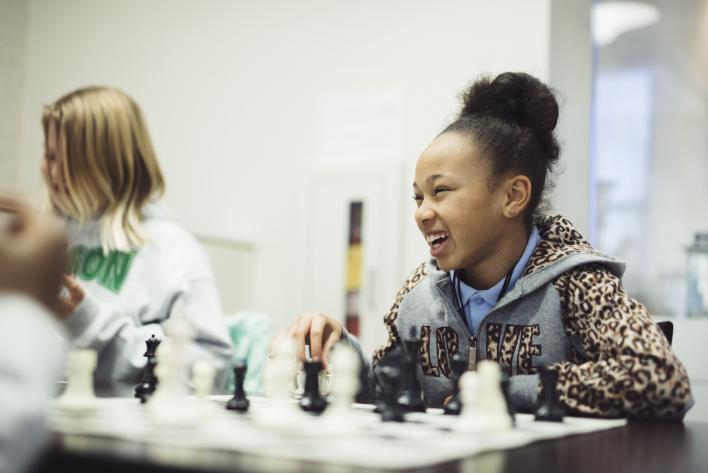
by Cesar A Mendoza Obregon, Scholastic Chess Instructor
According to International Master and author Jeremy Silman, “The real purpose of the chess opening is to create a difference (or a series of differences) in respective positions and then develop your army around these facts" (The Complete Book of Chess Strategy).
These words were taught by my chess instructors back in Peru. I did not know then, but those words shaped who I am now. Chess is not only an activity that is a passion for me, but it is also a philosophy of life that has developed my character. When you play chess, you do not only create a difference in a respective position and the development from there, you create a situation and its consequences develop during the game. These facts of the chess game also apply to every aspect of my life.
I teach chess in Saint Louis at private and public elementary schools. Each day while I am driving, I do not feel the pressure that I need to do this job – the feeling is completely the opposite. I am passionate about chess and teaching chess makes me feel like I am doing something that contributes and improves someone else’s life. In a class with 15-20 children, two of my characteristics go into action: creativity, and patience. These attributes are needed every minute in my teaching.
-
Patience is essential because my students do not see chess as a mathematics or science course. There is not a recipe that they need to repeat or memorize.
-
My creativity is necessary to keep the students' s attention. The pupils' smiles reflected in their faces while they are playing with every new piece of chess is what makes my job worthwhile. Their reactions are the best feedback. Ironically, I see myself in them. It is me, a few years ago, when l realized that you could learn life not only with a book but also with a magnificent game.
My most significant struggle in life, as in the classroom, is to show an audience (or students) the reason behind the lesson. This game helped me and my learners to see that the goal or purpose is not evident at the start. Those 16 pieces of chess are their army that only they command. They lead their soldiers with a smile now, as they will lead their lives, as they did with plastic pieces, in the future. Now, the children have clear goals (how to win the game). They understand that every move or strategy they create has a consequence. They understand that every weakness transforms into a stronghold in the game (and in life).
If your center (outlook and view) are open, meaning that free files and diagonals (opportunities) penetrate into your camp, development takes on great significance. The “center and diagonals” mentality is a personal philosophy that I developed in my chess practice and is a point of view I always comment on in my class. I admire several people, like Kasparov and Silman, both authors of chess and political strategy books. They are people with complete control of their center game (and career) and very skillful in their strategies, options, and goals.
Chess habits include discipline, dedication, goals, and ability to overcome obstacles. For me, chess is not just a social or leisure activity, but a path to improve. Chess habits are the ones I welcome and practice in my day-to-day life. These patterns need to be followed day-by-day to be effective. Is there a better way to improve your life than through playing a game?


